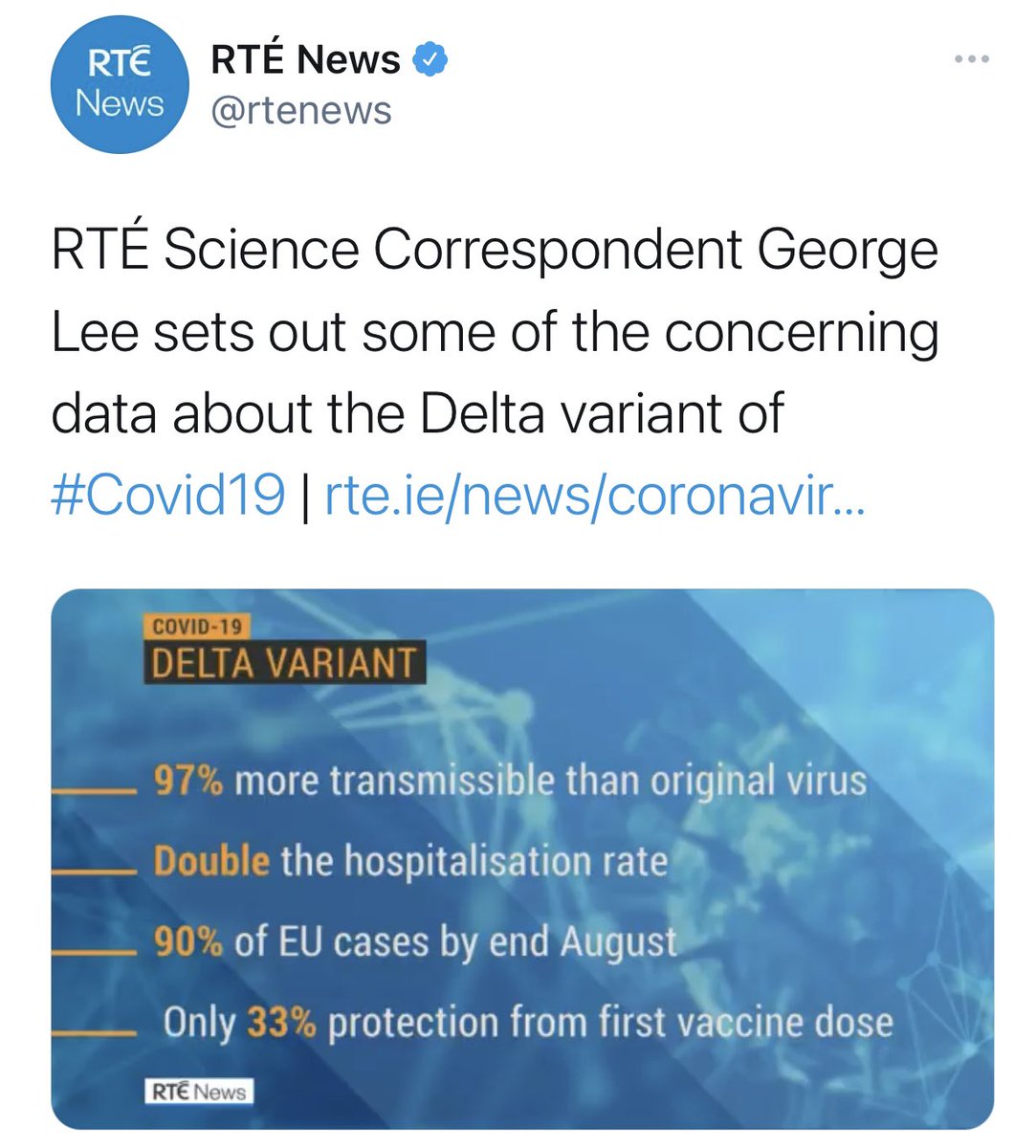A sense of balance and a question of who is right ? @DonnellyStephen @ciarakellydoc @SusanMitchell_ @ronan_glynn @Care2much18 @ConorRiordan2 @FatEmperor
1/ Sometimes I wonder are the debates on twitter a reflection on how the wider population feel. Is there such a degree of anger and divergent opinions regarding Covid and our response? It seems to be one camp or another.
2/ I usually try to see if there is merit/data/scientific fact in both sides of an argument. I start off by taking the approach that the opinion of the person is correct and then work back from there.
3/ Often, as for all opinions or arguments, there are valid statements and then other statements which seem less factually correct or backed up with evidence. And everyone is fully entitled to their opinions.
4/ So for me the challenge is to determine who or what facts are correct. I have found @ConorRiordan2 data over the months very useful, factual and unbiased. Seven and fourteen day averages for case numbers I think are a fair way to portray cases and our responses.
5/ I also find @Care2much18 gives very convincing data on trends around Europe. Trends that should cause us to be sensible. And then there is a counter viewpoint by the Ivor Cummins @FatEmperor with data which also seems quite valid and scientific.
6/ So I like many others find myself in a predicament- is the truth somewhere in the middle, and who to believe.
I think it’s straight forward to accept that as cases increase in the community then cases will eventually arise again in the elderly and vulnerable.
I think it’s straight forward to accept that as cases increase in the community then cases will eventually arise again in the elderly and vulnerable.
7/ I don’t believe that lockdowns will work or be acceptable, and indeed we will see major health events with lockdowns/recessions that will outnumber Covid by many multiples.
8/ Cancer, heart disease, stroke, depression have not gone away and in fact may be worsening in the community due to the restrictions, job losses, stress, and fear of attending GPs and hospitals with symptoms. But yet we all fear a situation where hospitals and ICUs are overrun.
9/ We don’t want a loved one to die alone, unable to have a child, spouse or sibling at their beside. We don’t want our health care staff to break down through the stress and pressure of working in such an environment.
10/ So how do we balance the fear of “getting it wrong” with the need to live with the virus. Maybe there is too much faith being put in having a vaccine early next year.
11/ Maybe we feel we are much better now at treating Covid patients since we have learnt so much first time around.
12/ Emerging data talks about a degree of cross immunity in T cells in people who have been exposed to other coronaviruses (the common cold)- some suggest there may be a degree of “herd” immunity out there already. Then there are cases of reinfection (Hong Kong)- so what is true?
13/ So we are trying to anticipate the future and take steps to prevent a terrible outcome. I have believed for many months that we are now in a better situation- masks, hand washing, distancing, etc.
14/ We are without doubt better set up to reduce community spread. Of course we can’t become complacent, things can’t and won’t go back to normal for some time. But maybe we are ok at the moment watching sport with no crowds.
15/ Just to have sport back is fantastic, and like many things, we are appreciating many things now that we perhaps took for granted before.
16/ So maybe my suggestion is for us to tell ourselves that we have done well so far, we have done what was needed of us and what was asked of us, but we must stay the course, let’s not get complacent.
17/ Hopefully we can continue to live with the virus, albeit with some restrictions, but restrictions that are sensible, acceptable and in as much as possible based on science and fact.
18/ And hopefully there can be an emerging balance in the arguments back and forth.
• • •
Missing some Tweet in this thread? You can try to
force a refresh





